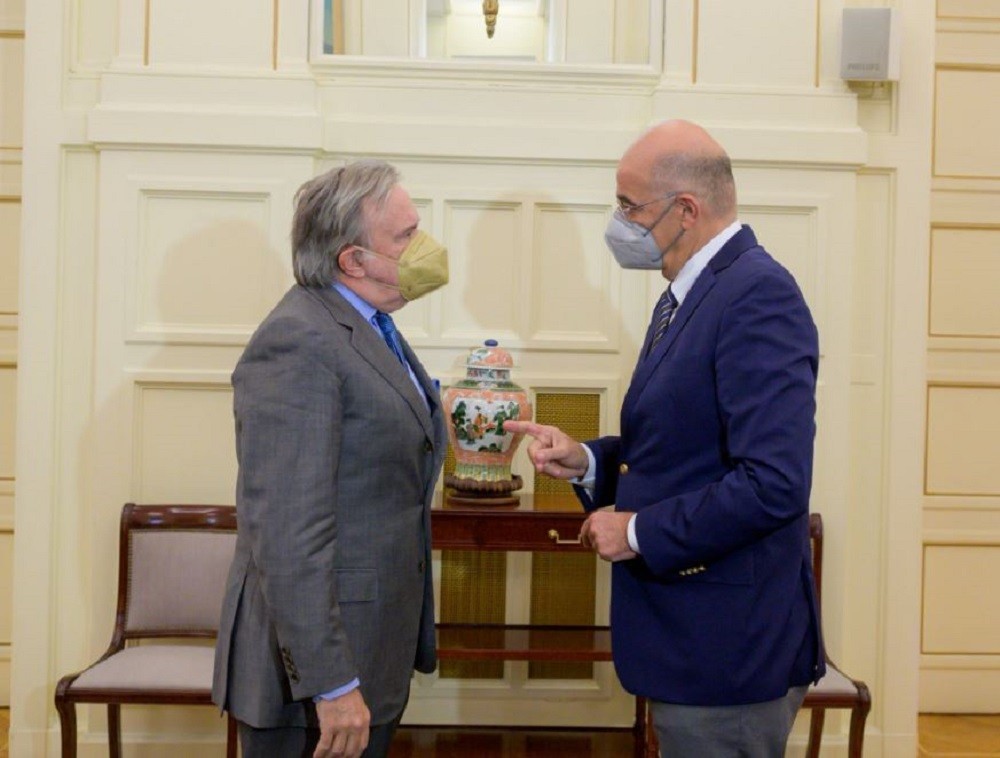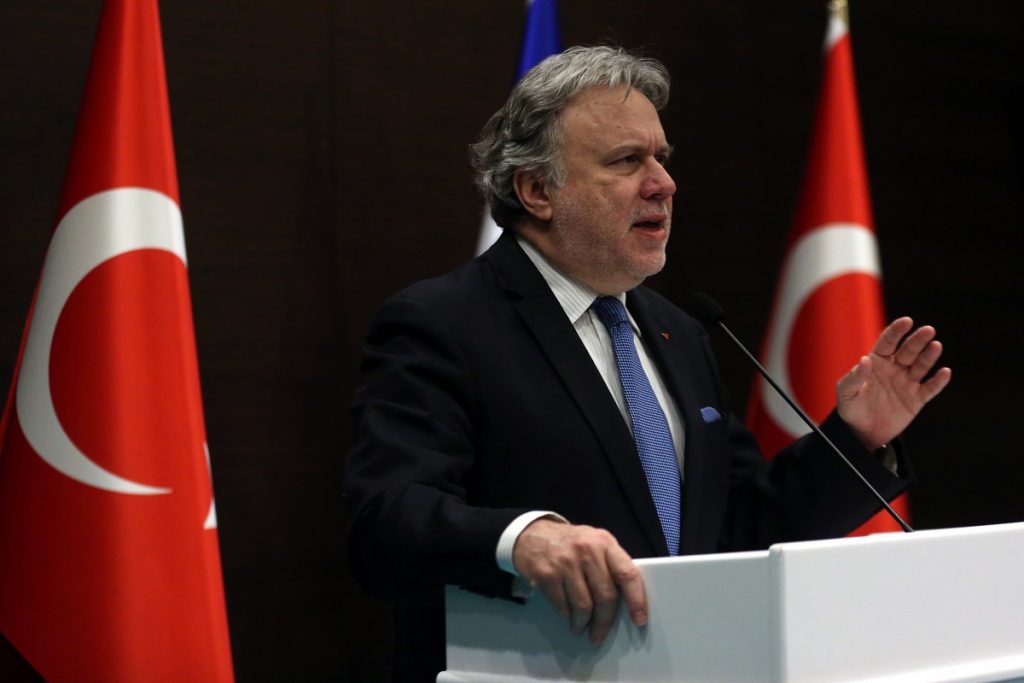
“No government has reached so clsoe to a deal as we” says Katrougalos about FYROM dispute
The current government has set the bar higher than any other in terms of the conditions for resolving the name dispute with the Former Yugoslav Republic of Macedonia (FYROM), Alternate Foreign Minister for European Affairs George Katrougalos said on Tuesday, speaking to Athens-Macedonian News Agency (ANA) radio station “Praktoreio 104.9 FM”.
“We have set the bar very high, at a level no government had set it before, especially in terms of the erga omnes condition and revising FYROM’s Constitution,” he said, commenting on the prospect of an Athens-Skopje agreement on the name.
He noted that all the main issues had essentially been agreed when the Greek and FYROM foreign ministers met in New York and Brussels.
“The only thing that remains is for the agreement to become official at the highest political level. We are willing to help the other side promote these matters because we believe them to be mutually beneficial and we recognise the difficulties that [FYROM’s Prime Minister Zoran] Zaev will have to face within his country. We are always ready and open for minor improvements if they will increase the possibility that the agreement is approved not just by the neighbouring country’s parliament but also in the referendum,” Katrougalos said.
Asked about the name agreed upon, he said “the name is one of those put on the table by UN Special Mediator for FYROM name issue Matthew Nimetz. Since it meets the conditions we have set, we have no reason to be picky. After all, the other country is the one that will change its name and its Constitution, which is something that has never happened before in diplomacy. They are better names than those discussed in the past, by other governments,” said Katrougalos.
On the language issue, Katrougalos noted that “our country had accepted a ‘Macedonian’ language since 1977. There are some things established at a UN level that we never challenge because it is in our interest for international law to be a stable frame of reference. Beyond that, what we have tried to do – and I think that the Greek people will see that we have succeeded – is to designate that this language is Slavic and in no way related to either Alexander the Great and or ancient Greek Macedonia.”
Source: AMNA

